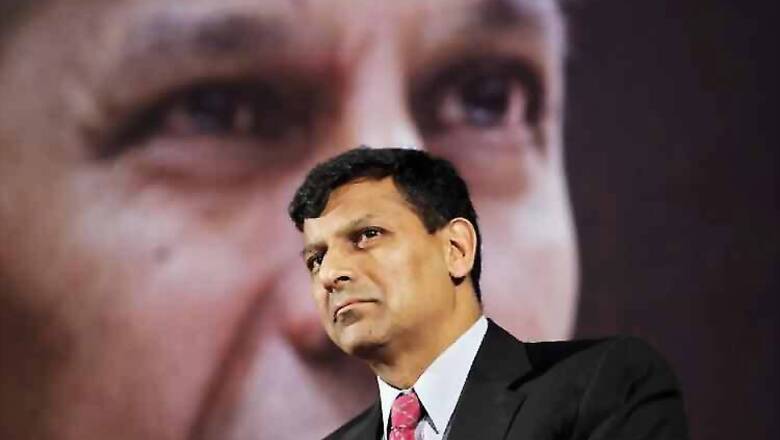
views
New Delhi: Reserve Bank of India Governor Raghuram Rajan on Saturday said structural reforms can help achieve potential growth, suggesting that write-downs may be a remedy to growth slowdown.
At the same time he admitted that large-scale write-offs are politically difficult. Speaking at Advancing Asia Conference, he said financial boom preceding the Great Recession left industrial countries with an overhang of debt, which was holding back growth.
"While the remedy may be to write down debt so as to revive demand from the indebted, it is debatable whether additional debt-fueled demand is sustainable. At any rate, large-scale debt write-offs seem politically difficult even if they are economically warranted," he said.
Structural reforms that increase competition, foster innovation and drive institutional change are the way to raise potential growth, Rajan said. While monetary policy cannot substitute structural reforms and elevate growth potential, the central banker said "no central banker can claim they are out of tools".
Stating that all monetary policies have external spillover effects, he said if interest rates are reduced, exchange rate also typically depreciates, helping exports. Rajan said there are few areas of robust growth around the world, with the International Monetary Fund repeatedly reducing its growth forecasts in recent quarters.
"This period of slow growth is particularly dangerous because both industrial countries and a number of emerging markets need high growth to quell rising domestic political tensions," he said. Rajan said given the importance of spillovers from monetary policies, especially in the face of globally low inflation, it was important to build a global consensus on how to get better outcomes for the world.
He however cautioned that there may not be an international agreement on the issue as a number of country authorities like central banks have explicit domestic mandates. He suggested a period of focused discussion, first outside international meetings, then within international meetings. Such a discussion need not take place in an environment of finger pointing and defensiveness, but as an attempt to understand what can be reasonable, and not overly intrusive, rules of conduct, he said.
Once consensus is built on the rules of conduct, the next step of codifying th rules can be contemplated. "The international community has a choice. We can pretend all is well with the global financial non-system and hope that nothing goes spectacularly wrong. Or we can start building a system for the integrated world of the twenty first century. I do hope we can consider some initial steps," he said.



















Comments
0 comment